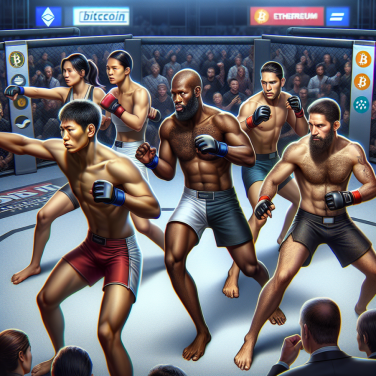A Detailed Analysis: How 'How Soccer Explains the World' Deciphers Global Dynamics
In his groundbreaking account, 'How Soccer Explains the World', journalist Franklin Foer offers an alternate viewpoint on the complexities of global dynamics. Representing a wholly unexpected method of exploring the shadowed corners of globalization, Foer uses soccer, a game played and loved by millions, as a lens through which to examine worldwide socio-political matters.
Foer's exploration starts with a somewhat conventional perspective on football, focusing on the fanaticism of the fans. This fanaticism, often associated with nationalistic sentiments, forms a large part of the football landscape. He argues that in many ways, increasing globalization has not diluted nationalism, but rather, it has spurred it. He uses the example of Serbia's Red Star Belgrade, whose followers’ violence and fervor in their nationalistic pursuits led to the Yugoslav Wars.
Football also serves as a mirror to the state of society, particularly the issue of racism which plagues many countries. A glaring example is Brazil, a country hailed for its multiculturalism and diverse ethnic background. Yet, racial prejudice remains deeply rooted in its society, illustrated by the lack of black players in positions of 'intellect' on the field, such as goalkeeper or coach. Foer uses such examples to highlight the failure of globalization in eradicating deeply entrenched societal prejudices.
Further, Foer decodes the global dynamics of economics through soccer, interrogating the rampant corruption within FIFA. Delving deep into some of the most controversial periods of the organization's history, Foer lays bare the grim realities of unchecked capitalism and the pervasive greed that often overlooks the sanctity of the world's most beloved game. The book explores how even in an era of purported transparency and regulations, corruption thrives merrily at the expense of the masses.
Moreover, he investigates the phenomenon of cultural homogenization that globalization is often accused of promoting. Foer dissects how football paraphernalia, major games and clubs' ubiquitous influence have penetrated even the most remote corners of the world, including the traditional tribal lands of Africa. Yet, far from eradicating indigenous cultures, he argues, these entities have often been locally appropriated and reimagined.
Foer uses the medium of soccer to analyze the issue of religious conflict as well, drawing attention to the infamous rivalry between Celtic and Rangers in Glasgow, dividing lines along Catholic and Protestant faiths. This brings to the fore questions about religious identities and their place in our globalized world.
Read also:
Exploring the Globe: Where Golf Courses Have Transformed Destinations
Unraveling Global Trends through the Lens of Soccer: A Review of 'How Soccer Explains the World'
Franklin Foer’s book, 'How Soccer Explains the World', delivers a captivating insight into the global dynamics through the lens of soccer. It underscores how football, despite being just a game, reflects and shapes the political, economic, and social landscapes of different countries, if not the entire world.
In the book, the author takes us in a journey across Serbia, Scotland, Brazil, the United States, Iran, Argentina, Ukraine, among other countries, revealing how soccer transcends borders and influences major global phenomena.
Unearthing the Effects of Globalization
Foer's analysis of globalization and its consequences on the world of football demonstrates how soccer, being an international sport, proves to be a powerful tool to understanding international relations. He examines how British clubs maintain substantial influence in different parts of the world just like how the country exercises its hegemony on a global scale.
Additionally, understanding the consumer side of football, Foer highlights how the commodification of soccer parallels the expansion of global capitalism. This shows how football is not just a recreational activity, but also a multi-billion-dollar industry.
Tackling Race and Identity through Football
One of the critical aspects that Foer explores in his book is the role of race and identity in soccer. He showcases how certain clubs are defined by their racial and ethnic backgrounds, highlighting the extent to which these elements seep into the world of football. This is evident in how clubs like FC Barcelona have become symbols of regional identity, rebellion, and resistance against central authorities.
Events like the annual games between Rangers and Celtics in Scotland, known as the Old Firm, clearly reflect the bitter Protestant-Catholic divide in the country. Similarly, in countries like Iran, women's struggle for equal rights is mirrored in their fight for attending football matches, a right which was previously only enjoyed by men.
Examining Politics Through Soccer
Soccer holds the power to influence political ideologies. Looking from an international perspective, Foer illustrates how politics often invades the soccer field, with both politics and soccer sharing an unusual symbiosis.
In countries like Argentina and Ukraine, football clubs have directly impacted political landscapes, with football club owners using their influence to secure political positions. In these scenarios, politics and football seem to be inseparable, reinforcing the power and reach of soccer beyond the pitch into the corridors of power.
Rampant Corruption and Soccer
Foer draws vivid parallels between corruption in soccer and the corruption endemic in global business and politics.




